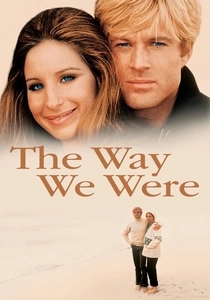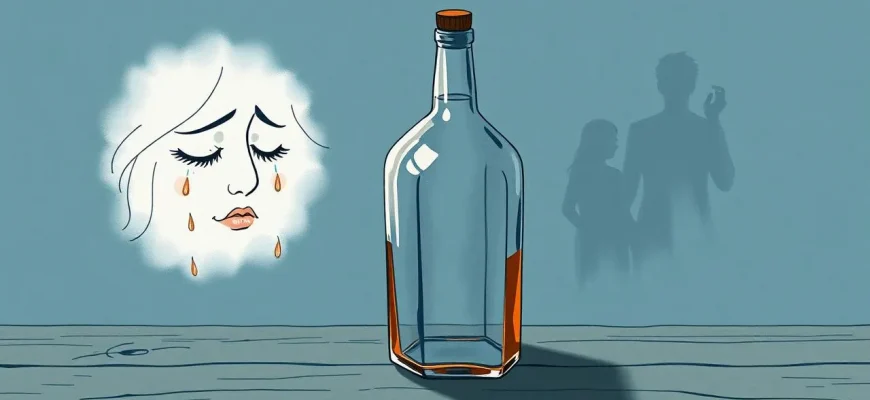Alcohol has long been a theme in cinema, often used to explore themes of love, loss, and personal struggle. This curated list of melodramas delves into the complexities of alcohol dependency, its impact on relationships, and the journey towards redemption. These films not only entertain but also provide a poignant look at the human condition, making them valuable for anyone interested in stories of resilience, heartbreak, and the quest for sobriety.

The Lost Weekend (1945)
Description: A writer's descent into alcoholism is portrayed with stark realism, capturing the cycle of addiction and the struggle to break free. This film was groundbreaking for its time in its depiction of alcoholism.
Fact: It was the first film to win the Academy Award for Best Picture without being nominated for Best Director. Ray Milland's performance earned him an Oscar for Best Actor.
 Watch Now
Watch Now 
Days of Wine and Roses (1962)
Description: This film tells the story of a couple whose lives spiral out of control due to their mutual descent into alcoholism. It's a poignant look at how addiction can destroy relationships.
Fact: The film's title comes from a poem by Ernest Dowson. It was one of the first films to openly discuss Alcoholics Anonymous.
 Watch Now
Watch Now 
The Way We Were (1973)
Description: While not solely about alcoholism, the film features a subplot where one of the main characters struggles with drinking, affecting their relationship. It's a classic love story with a twist.
Fact: The film was initially much longer, with scenes cut that would have shown more of the character's struggle with alcohol.
 Watch Now
Watch Now 
When a Man Loves a Woman (1994)
Description: A story about a woman's battle with alcoholism and how it affects her marriage. It's a heartfelt exploration of love, support, and the challenges of recovery.
Fact: The film was initially titled "The Last Good Time." Meg Ryan's performance was praised for its depth and vulnerability.
 Watch Now
Watch Now 
Leaving Las Vegas (1995)
Description: This film follows a screenwriter who moves to Las Vegas to drink himself to death, where he meets a prostitute with whom he forms an unlikely bond. It's a raw exploration of alcoholism and the search for connection amidst despair.
Fact: Nicolas Cage won an Academy Award for Best Actor for his role. The film was adapted from John O'Brien's novel, who tragically took his own life shortly after selling the rights.
 Watch Now
Watch Now 
The Spectacular Now (2013)
Description: A high school senior's life is defined by his drinking until he meets a girl who changes his perspective. This coming-of-age story intertwines themes of youth, love, and the specter of alcoholism.
Fact: The film was adapted from a novel by Tim Tharp. It was praised for its realistic portrayal of teenage life and substance abuse.
 Watch Now
Watch Now 
Smashed (2012)
Description: A young teacher's life unravels as her drinking problem escalates, leading her to confront her addiction head-on. This film offers a modern take on the struggle with alcoholism.
Fact: Mary Elizabeth Winstead received critical acclaim for her role, winning several awards for Best Actress. The film was inspired by real-life experiences of its writers.
 Watch Now
Watch Now 
The Iceman Cometh (1973)
Description: This adaptation of Eugene O'Neill's play centers around a group of down-and-out alcoholics in a New York bar, exploring themes of hope, despair, and the illusions they cling to.
Fact: The film was directed by John Frankenheimer and features a star-studded cast, including Lee Marvin and Fredric March.
 Watch Now
Watch Now 
28 Days (2000)
Description: After a car crash caused by her drinking, a woman is sentenced to 28 days in rehab. The film humorously and poignantly depicts her journey towards sobriety.
Fact: Sandra Bullock's performance was noted for its authenticity, drawing from her own experiences with family members who struggled with addiction.
 Watch Now
Watch Now 
The Days of Being Wild (1990)
Description: Set in 1960s Hong Kong, this film explores themes of love, loss, and the transient nature of life, with alcohol playing a significant role in the characters' lives.
Fact: Directed by Wong Kar-wai, this film is part of his informal trilogy, with themes that echo through his later works.
 30 Days Free
30 Days Free 








